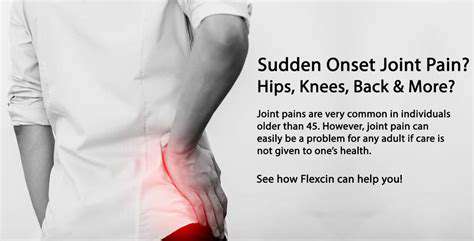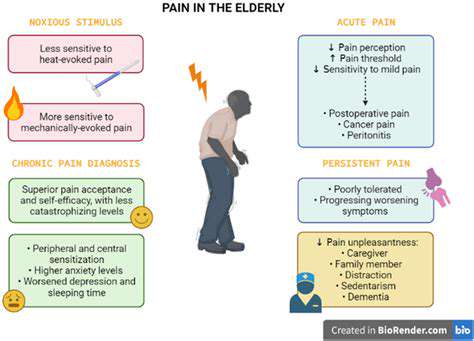What Causes Severe Pain with Sudden Onset?

Understanding the Mechanism of Pain
Pain is a complex phenomenon triggered by various factors, including physical injury, inflammation, or nerve damage. Severe pain with sudden onset often signals an underlying issue that requires immediate attention. Recognizing the type of pain and its intensity can be crucial in determining the necessary course of action.
The body uses pain as a warning system, indicating that something is wrong. This can involve the activation of pain receptors in response to damage or potential harm. Understanding these mechanisms helps in identifying the root cause of severe pain.
Additionally, different types of pain such as acute, chronic, or referred pain can manifest, leading to confusion about the source of discomfort. Hence, thorough assessment is essential for appropriate management.
Common Causes of Sudden Severe Pain
There are several potential causes of sudden severe pain, including conditions like appendicitis, gallstones, or kidney stones. Each of these conditions has its distinct symptoms and implications for treatment. Identifying the cause promptly can significantly influence the outcome.
For instance, appendicitis typically presents with sharp pain in the lower right abdomen, while gallstones may cause intense pain following a fatty meal. Recognizing these patterns can assist medical professionals in delivering timely interventions.
Other serious causes may include a heart attack, abdominal aortic aneurysm, or pulmonary embolism, all of which require immediate medical evaluation. Understanding the signs associated with these conditions can enhance readiness for prompt action.
Immediate Actions to Take
When experiencing severe pain with sudden onset, the first step is to assess the pain and associated symptoms. Documenting additional symptoms such as nausea, vomiting, or shortness of breath can aid healthcare providers. Quickly identifying these symptoms can ensure the right medical attention is sought.
If the pain is extreme or accompanied by concerning symptoms, it is vital to call emergency services or head to the nearest hospital. Avoiding self-diagnosis or treatment at home is crucial in these scenarios because wrong assumptions can aggravate the situation.
While waiting for medical help, keeping the patient calm and comfortable can also help alleviate some anxiety associated with severe pain. This support can be critical in managing the overall situation until professional help arrives.
The Importance of Early Intervention
Early medical intervention can make a significant difference in the prognosis of many conditions associated with severe pain. Time-sensitive conditions, such as those affecting the heart or major blood vessels, can lead to serious complications if not treated quickly. Recognizing the need for timely care is vital to avoid long-term consequences.
In many cases, pain management strategies can be employed quickly to improve patient comfort even before an exact diagnosis is made. This dual approach of treating symptoms while investigating their cause enhances care outcomes.
Moreover, education on the signs of severe pain can empower individuals to seek help when necessary. This approach fosters a proactive health management stance among patients and caregivers alike.
Preventive Measures and Lifestyle Adjustments
While not all sudden severe pain can be anticipated or prevented, certain lifestyle adjustments can help in mitigating risks. For instance, maintaining a healthy diet and regular exercise can reduce the likelihood of conditions such as gallstones and heart problems. Taking proactive steps toward health can minimize future pain episodes.
Stress management and adequate hydration also play critical roles in overall well-being and pain prevention. Learning relaxation techniques can aid in managing stress that may contribute to tension headaches or muscle pain.
Finally, educating oneself about personal health history and risk factors can bolster preparedness for sudden severe pain episodes. Engaging in regular health check-ups enables early identification of potential issues, paving the way for timely interventions.
What to Do When You Experience Severe Pain

Understanding the Causes of Severe Sudden Pain
Severe pain that occurs suddenly can arise from various conditions and often indicates an urgent medical issue. Some common causes include appendicitis, heart attacks, and ruptured organs. Each of these conditions requires immediate attention to prevent serious complications.
Identifying the source of the pain is crucial for appropriate treatment. For instance, chest pain might be related to cardiovascular problems, whereas abdominal pain could suggest gastrointestinal issues. Thus, the location and type of pain can guide healthcare professionals in making an accurate diagnosis.
Other potential causes could include injuries from accidents, fractures, or even severe migraines. It's important to remember that not all severe pain is related to life-threatening conditions, but seeking medical advice is always a wise choice.
Immediate Actions to Take When Experiencing Severe Pain
When faced with sudden severe pain, the first step is to remain calm and assess the situation. Knowing when to call emergency services can be life-saving. If the pain is unbearable or accompanied by other alarming symptoms, don't hesitate to seek help.
In some cases, lying down and resting can alleviate the discomfort until medical personnel arrive. However, if there’s bleeding or signs of shock, it’s crucial to position the person appropriately and keep them warm while awaiting assistance.
Documenting any other symptoms, such as nausea, dizziness, or shortness of breath, can be beneficial for healthcare providers. Being prepared with concise information about the pain’s onset and duration can significantly aid in the assessment and treatment process.